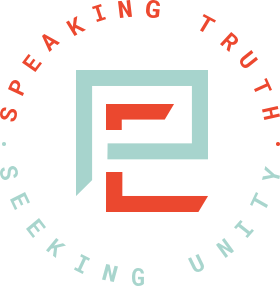I am so tired of coming across church people who want to argue that churches should have nothing to do with the fight for social justice for which so many of us, myself included, are doing everything we can to bring attention to. What makes it even worse is when some try to use lines from Dr. Martin Luther King’s “I Have A Dream” speech to make a point of what they believe he would’ve wanted from all of us today
Since our biased history books only want to share the more rose-colored pieces of the puzzle with us, I am going to shine a light on a specific section of Dr. King’s letter that was written while he was locked up in a Birmingham, Alabama jail. Take a few moments to read through this and learn for yourself exactly how he felt about the church’s role in what was happening in America at that time. I’m terribly disappointed to see just how much his words still hold relevance when held up next to our current issues, over 50 years later.
(Start of Excerpt.) “I had the strange feeling when I was suddenly catapulted into the leadership of the bus protest in Montgomery several years ago that we would have the support of the white church. I felt that the white ministers, priests, and rabbis of the South would be some of our strongest allies. Instead, some few have been outright opponents, refusing to understand the freedom movement and misrepresenting its leaders; all too many others have been more cautious than courageous and have remained silent behind the anesthetizing security of stained-glass windows.
In spite of my shattered dreams of the past, I came to Birmingham with the hope that the white religious leadership of this community would see the justice of our cause and with deep moral concern serve as the channel through which our just grievances could get to the power structure. I had hoped that each of you would understand. But again I have been disappointed.
I have heard numerous religious leaders of the South call upon their worshipers to comply with a desegregation decision because it is the law, but I have longed to hear white ministers say, follow this decree because integration is morally right and the Negro is your brother. In the midst of blatant injustices inflicted upon the Negro, I have watched white churches stand on the sidelines and merely mouth pious irrelevancies and sanctimonious trivialities. In the midst of a mighty struggle to rid our nation of racial and economic injustice, I have heard so many ministers say, “Those are social issues which the gospel has nothing to do with,” and I have watched so many churches commit themselves to a completely otherworldly religion which made a strange distinction between bodies and souls, the sacred and the secular.
There was a time when the church was very powerful. It was during that period that the early Christians rejoiced when they were deemed worthy to suffer for what they believed. In those days the church was not merely a thermometer that recorded the ideas and principles of popular opinion; it was the thermostat that transformed the mores of society. Wherever the early Christians entered a town the power structure got disturbed and immediately sought to convict them for being “disturbers of the peace” and “outside agitators.” But they went on with the conviction that they were “a colony of heaven” and had to obey God rather than man. They were small in number but big in commitment. They were too God-intoxicated to be “astronomically intimidated.” They brought an end to such ancient evils as infanticide and gladiatorial contest.
Things are different now. The contemporary church is so often a weak, ineffectual voice with an uncertain sound. It is so often the arch supporter of the status quo. Far from being disturbed by the presence of the church, the power structure of the average community is consoled by the church’s often vocal sanction of things as they are.
But the judgment of God is upon the church as never before. If the church of today does not recapture the sacrificial spirit of the early church, it will lose its authentic ring, forfeit the loyalty of millions, and be dismissed as an irrelevant social club with no meaning for the twentieth century. I meet young people every day whose disappointment with the church has risen to outright disgust. I hope the church as a whole will meet the challenge of this decisive hour.” (End of excerpt.)
At the end of the day, I want everyone who reads this to know that I absolutely love being a part of the Church and would not trade it for anything in the world. However, for those who want to continue arguing that churches and pastors should have no role to play in the social justice arena—I suggest you stop trying to validate your stance by using the few pieces of Dr. King’s words that you remember and do not feel challenged by.
Instead, I dare every Christian, every pastor, and every church to read through this entire letter and ask yourself if Dr. King would have seen you as one of his “strongest allies,” or as an “outright opponent.” I know what side I would have been on—what about you?
I have tried to make it clear that it is wrong to use immoral means to attain moral ends. But now I must affirm that it is just as wrong, or even more, to use moral means to preserve immoral ends.”


